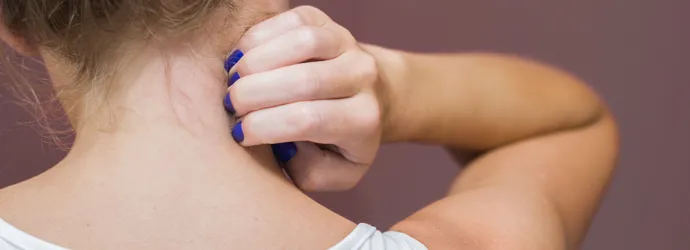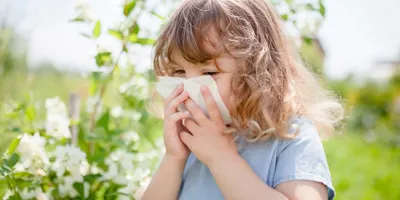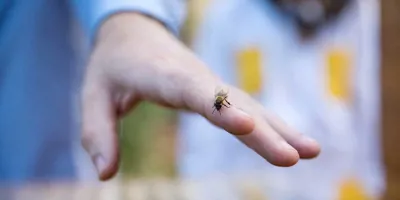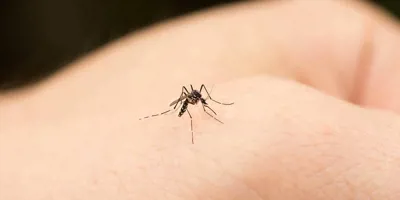26 people found this helpful

Wasps seem to be everywhere in the summer: in your garden, at work, out and about – you name it. There’s no need to worry though, when you know how to stop them from bothering you. So, what keeps wasps away? We’ve got tips on what plants deter wasps, and what to do if they do get you. Let’s kick off with what keeps wasps away.
How to keep wasps away
As the temperatures climb and we head into the heart of summer, the wasp population rises. The typical reaction? To throw our hands around and try to waft them away! It’s a totally understandable response. But it’s more likely to put them on alert and lead to a sting. It’s better to find out what repels wasps in a less frantic way. The following can help:
- Don’t leave sweet things lying around. Just like many of us, wasps are really attracted to sugary treats.
- Keep food covered. If they can’t sense or smell it, it won’t interest them.
- Seal your bins. Again, if they don’t know there’s food in there, they won’t bother with them.
- Use peppermint oil. Place pots, pads or bowls of it in strategic areas. Wasps really don’t like peppermint.
What plants deter wasps?
A variety of plants can keep wasps away, too. That’s mainly because the scent of certain plants repels wasps. What scent keeps wasps away? Here are some plants you can try:
- Basil
- Cucumber
- Citronella
- Mint
- Eucalyptus
- Garlic
What to do with a wasp sting
We’ve looked at what repels wasps and what scent keeps wasps away, but what should you do if you do get stung? The following process will help:
- Wash the area with soap and water to remove as much venom as possible.
- Apply a cold compress to the sting to help soothe and lower inflammation around it.
Tip: Wrap an ice cube in a couple of Cushelle Pocket Pack Tissues to make your compress. They’re gentle on the skin but can survive a trip in the washing machine, so they will hold the ice well.
- Keep the area clean to prevent any infection.
- Apply a bandage if necessary.
In addition to the above steps, you can try home remedies for relief, or head to your pharmacy for over-the-counter medicines to help with a reaction. If you’re in any doubt about a severe or potentially allergic reaction, contact a medical professional immediately.
Prevention is always better than cure, so hopefully you won’t need these steps now that you know how to keep wasps away. Give our tips a try and wasps shouldn’t be as much of an issue this summer. Roll on those long, hot, wasp-free summer days.
Related articles
Pollen allergy in children: How to cope with kids’ hay fever
The symptoms of pollen allergy in children can be tackled. Click here for tips on how to treat hay fever in children.

5 natural and herbal remedies for hay fever to try at home
Want to know how to treat a pollen allergy at home? Discover five options, from herbal teas and steaming to herbal remedies for hay fever relief, here.

What Causes Puffy Eyes? Causes and Treatments
Looking for a swollen eye allergy treatment? Need to know what to do for swollen eyes? Try our list of swollen eye allergy home remedy ideas.

7 pollen-proof hay fever remedies
Tired of itchy eyes and runny noses? Read on if you’re looking for natural remedies to get rid of hay fever. From herbs to honey, we have a range of solutions!

The best home remedy for wasp stings and bee stings
Read on to learn from Cushelle what to do in case of a wasp or bee sting. Find out the right way to remove the stinger, how to relieve the symptoms and when to call a doctor.

Home remedies for mosquito bites that will help relieve itching
What helps mosquito bites? There are all sorts of home remedies for itchy bites and stings. Read our guide to how to treat mosquito bites at home.



